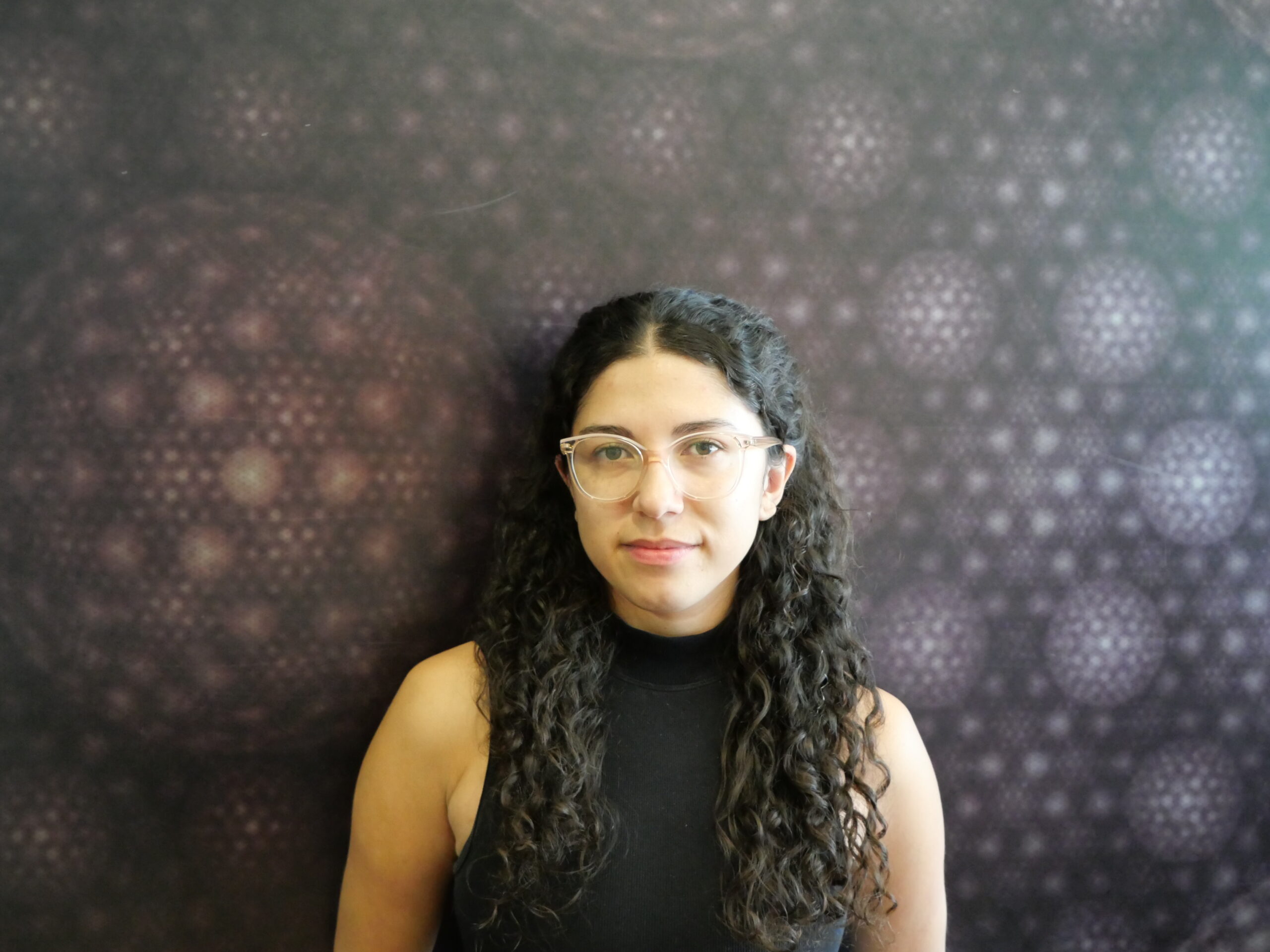
María Fernanda Florez
EDUCATION
Bachelor’s degree in Chemistry from Universidad Industrial de Santander, Colombia, where I conducted ab initio calculations on the dynamics of the HD⁺ molecular ion.
Master’s degree in Theoretical Chemistry and Computational Modelling, part of a program offered by a consortium of nine degree-awarding universities in France, Spain, the Netherlands, Belgium, and Italy. My dissertation focused on the optical absorption of phenyl-based polymers at the University of Valencia.
Summer internship at the Donostia International Physics Center (DIPC), where I conducted research on the non-linear optical properties of conjugated molecules.
I also work part-time as an online Spanish teacher. I am passionate about language learning, literature, science communication, and philosophy.
PROJECT
Modelling Radiative and Nonradiative Processes in Conjugated Organic Materials
PI: Prof Johannes Gierschner
INTERVIEW
Where do you come from?
I’m from the Colombian Andes, born and raised in a small town called Málaga. It sits at about 2,300 meters above sea level, and most people there make a living through farming and raising cattle. Thanks to public education, I was able to get into one of the top chemistry programs in the country, in the city of Bucaramanga and later I enrolled in an Erasmus master program here in Europe.
What are your main personal and professional concerns?
I’m deeply concerned about the growing trend of anti-scientific thinking and the false sense of knowledge that comes with having access to vast amounts of information. Without critical thinking, it becomes nearly impossible to differentiate between truth, misinformation, and outright propaganda. As a science professional I try to emphasize the importance of the method we use, how careful and thorough we have to be in order to know something. How important it is to identify our biases and correct them. We live in an amazing time where we comprehend the world better than ever, so it’s concerning to me how much people now believe the earth is flat and conspiracy theories as such.
What does your research consist on?
My research focuses on organic molecules and their interactions with light. Specifically, I study what happens when they absorb a photon and an exciton forms. What becomes of the exciton? Will there be charge transfer between states? How does the molecule’s geometry changes upon excitation? What insights can we gather from these changes? Will the molecule emit another photon, and if so, will it be fluorescence or phosphorescence? So far I have done research about the difference between through bond and through space conjugation and their impact on the optical properties of polymers.
What power does science have to transform the world?
I believe science is the most powerful tool we have to change the world. The technology we have today is incredible, and it’s easy to overlook the significant advances we’ve made in areas like medicine or infrastructure, just to name a few. Thanks to science, we can live longer, healthier, and happier lives. However, it’s important to highlight that science isn’t a magical tool for gaining knowledge; it’s a rigorous way of thinking that is essential for the functioning of our social system. Without critical thinking true democracy doesn’t really exist. I think we need to be more aware of this when we communicate science.
Where do you find inspiration?
I feel really lucky to have worked with some amazing people since I started my academic journey. From my high school teachers to my grad-school professors, I’ve been really inspired by how they share their knowledge and help students build better lives. I hope I can be a source of inspiration for future generations, too!
I also feel inspired by people in my community in Colombia. I have been able to work alongside groups of farmers that get together to push collective projects and that make a huge difference in the way we live there.
Where do you see yourself in the future?
I see myself as a teacher, as somebody that shares her passion for science and its importance in our society. I want to share the wonders of the natural world around us and how amazing it is that we can make an attempt to understand it.
Why IMDEA Nanociencia?
I chose IMDEA Nanoscience because, in my experience as a theoretician, I have come to appreciate how much we can expand our understanding when working on interdisciplinary projects. It is easy to focus solely on our area of expertise, which sometimes leads to losing sight of the bigger picture and the broader implications of our work. I believe true growth lies in this wider perspective.
When I saw that IMDEA Nanoscience organizes its projects not by discipline but by a shared vision, I realized it was the ideal place for me. As a theoretical chemist, the opportunity to collaborate with experimentalists, physicists, and even biologists made me certain that I had found my dream job.
More information on the IDEAL Fellowships Programme
The IDEAL Fellowships Programme is supported by the Marie Skłodowska-Curie Actions (MSCA) COFUND. Grant agreement ID: 101034431.
